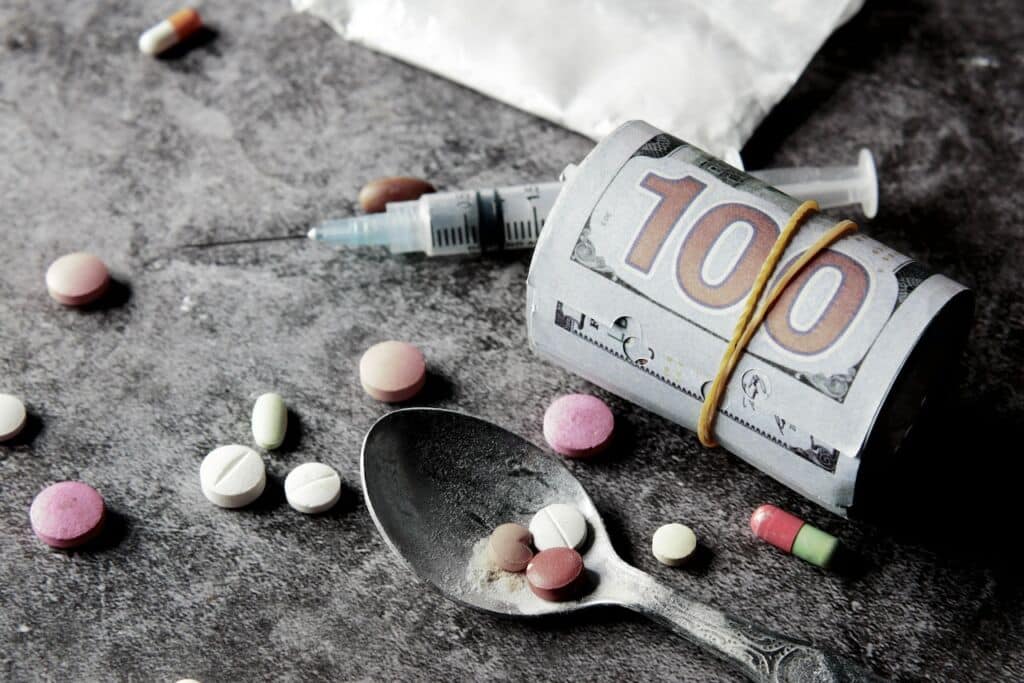In the modern world, addiction is seen as one of the most harrowing journeys that someone can go through. Addiction is a relentless, unforgiving process that can feel immensely damaging to our physical and mental well-being. The toll it can take on our bodies is incredible, and it can make recovering far more difficult than it needs to be. There are, though, other costs involved in addiction – often, they are economic in nature.
We do not often include the economic impact of addiction when we think about its cost to society. Yes, addiction can ruin someone’s life, making it hard for them to recover and return to where they were in life previously. Relationships can be damaged, often irrevocably, and career opportunities can be lost. Physical damage can be done to the body, making it harder for people to live life to its fullest extent.
The economic impact, though, can be just as detrimental. Let’s look at the economic impact of addiction and what it can mean to the individual and to society at large. Understanding the economic factor can be as important to building cohesive help structures for addiction patients. This can make it easier for people to realize the severity of the situation and why treatment is essential to their well-being.

The Economic Impact Of Addiction To The Individual
The primary impact economically when it comes to addiction is on the person. In the case of substance abuse, such as drug intake or alcohol use, costs can spiral out of control very quickly. The need for more of that substance can lead to increasingly desperate measures to get their hands on the money to get what they need.
Indeed, according to the HHS, as much as $249bn for alcohol misuse and $193bn for drug use could be lost each year.
For example, an individual could be quite likely to take on debt to have the funds to get what they require. They could start spending the money they need for food, paying bills, managing debts etc. to receive their fix. Over time, that begins to become a huge cost to the individual. They start to accrue more debt, lose more money, and whittle away what savings they have.
In desperation, this can lead to either borrowing money from unsafe sources or selling items they own and cherish simply to pay for the addiction. People can sell heirlooms, jewelry, mementos, and more simply to have the money they need. They could sell items they need to do their job, such as computer hardware or manual labor equipment.
In short, the economic cost to the individual can be incredible. Add in the fact that an addict is unlikely to perform to their best at work, and they could soon find themselves either without employment or with limited income due to reduced employment. That could mean they fall into a trap whereby they cannot pay what they owe, leading to illicit and illegal activity simply to try and make ends meet.
The economic impact of addiction, then, is often built around the fact that an individual might not know how to escape their predicament. As such, they might continually resort to damaging behavior that sees them borrow money to try and pay for their addiction.
Eventually, that economic cost catches up to the individual. Returning from such a negative cycle can be hard, and the impact can become lifelong. From broken trust and friendships to economic debt, lost income and employment opportunities, etc., addiction’s financial cost can be massive.
The Economic Impact Of Addiction To Society
The same is true of the wider cost of addiction when it comes to the cost to society. For example, it is believed that drug and alcohol abuse can cost corporations in America around $93bn per year. That is a staggering figure and further proof of the economic damage that addiction can have on the world today. The number of thriving professionals who are lost to addiction has a hugely detrimental effect on the US employment industry. Every year, then, it costs the country tens of billions of dollars.
The same also comes down to tax burdens. Treatments and imprisonment costs, as well as the cost of social welfare for addicted individuals and their families, can run into the billions per annum.



This money could have otherwise been spent on public services, improving cities, and creating new economic opportunities for others. Addiction has a huge spiraling cost issue that can become a major talking point. It is why so many advocate groups push for more to be done to stop addiction at its source.
The White House has previously suggested that as much as $11bn in healthcare and $61bn in criminal justice costs come from using illicit drugs in the USA annually.
The more that can be done to reduce the risk of addiction starting, the less will be spent on trying to undo the damage caused by addiction in the first place. From lost earnings to early death due to addiction, billions are lost every year in America, simply trying to fight the addiction issues that are so prevalent in the country.
Reduced productivity is another major issue caused by addiction. If someone cannot function at their best due to addiction, they risk not doing their job to their full value. This costs companies money in terms of productivity and performance, which is later felt in the company’s income regarding things like expansion and new opportunities for that particular business.
Finding Treatment Is Essential
One of the most important factors for anyone dealing with addiction is to look toward recovery as soon as possible. Groups like our own at Akasha Recovery can play a critical role in helping someone overcome their addictive nature and move towards a happier, brighter future.
The economic damage caused to the individual and the country cannot rightly be ignored. As such, creating treatment options that can give people a way out of this difficulty is so important to the long-term well-being of the country as a whole.
The more focus that can be put on recovery, the more likely someone can come back from the brink. With the right treatment plan, the massive costs associated with addiction can be overcome and defeated before they become too much to handle.
Anyone looking to work towards recovery should act now and avoid the massive costs that can come from prolonged addiction, both for themselves and the country.


